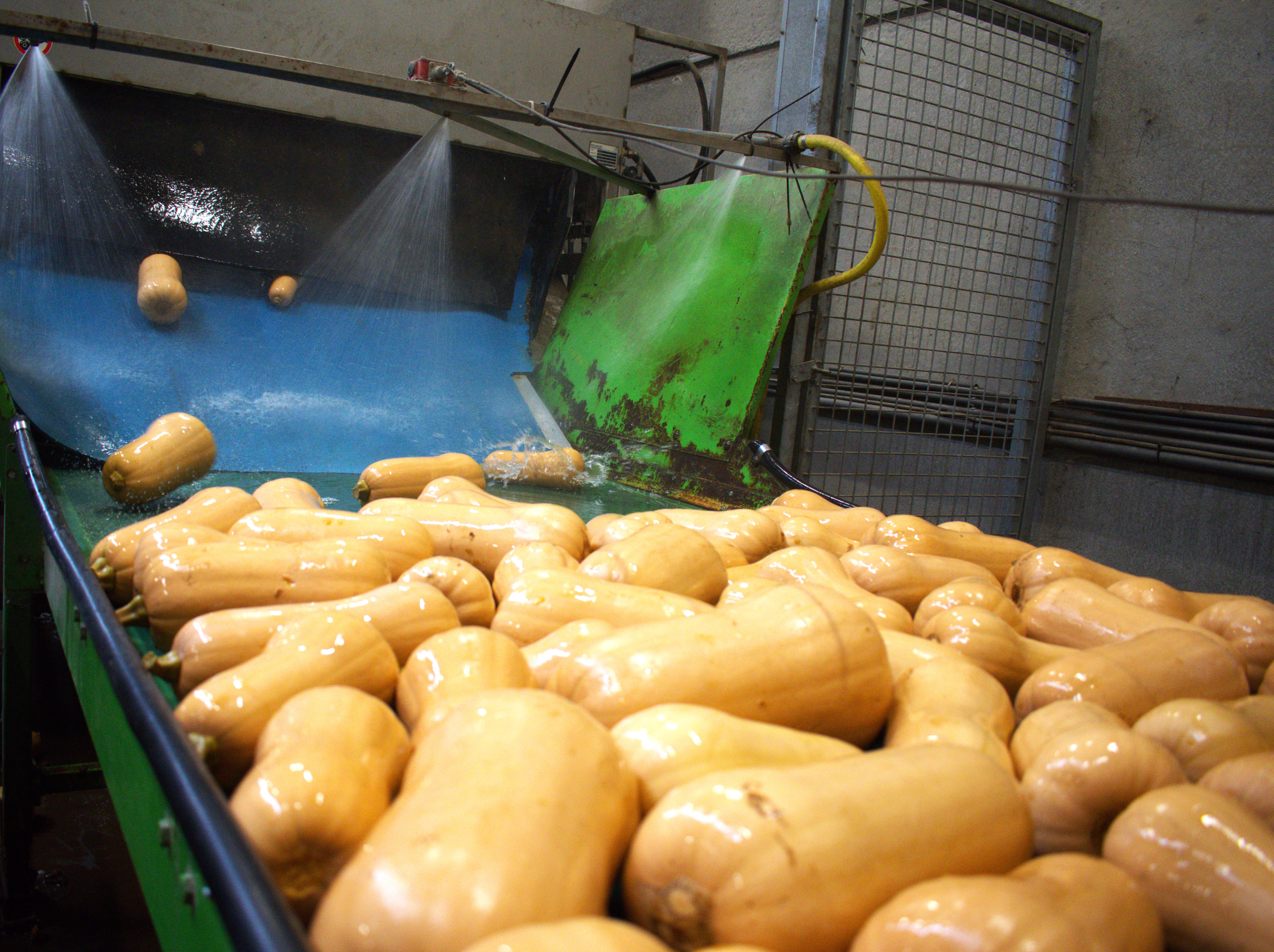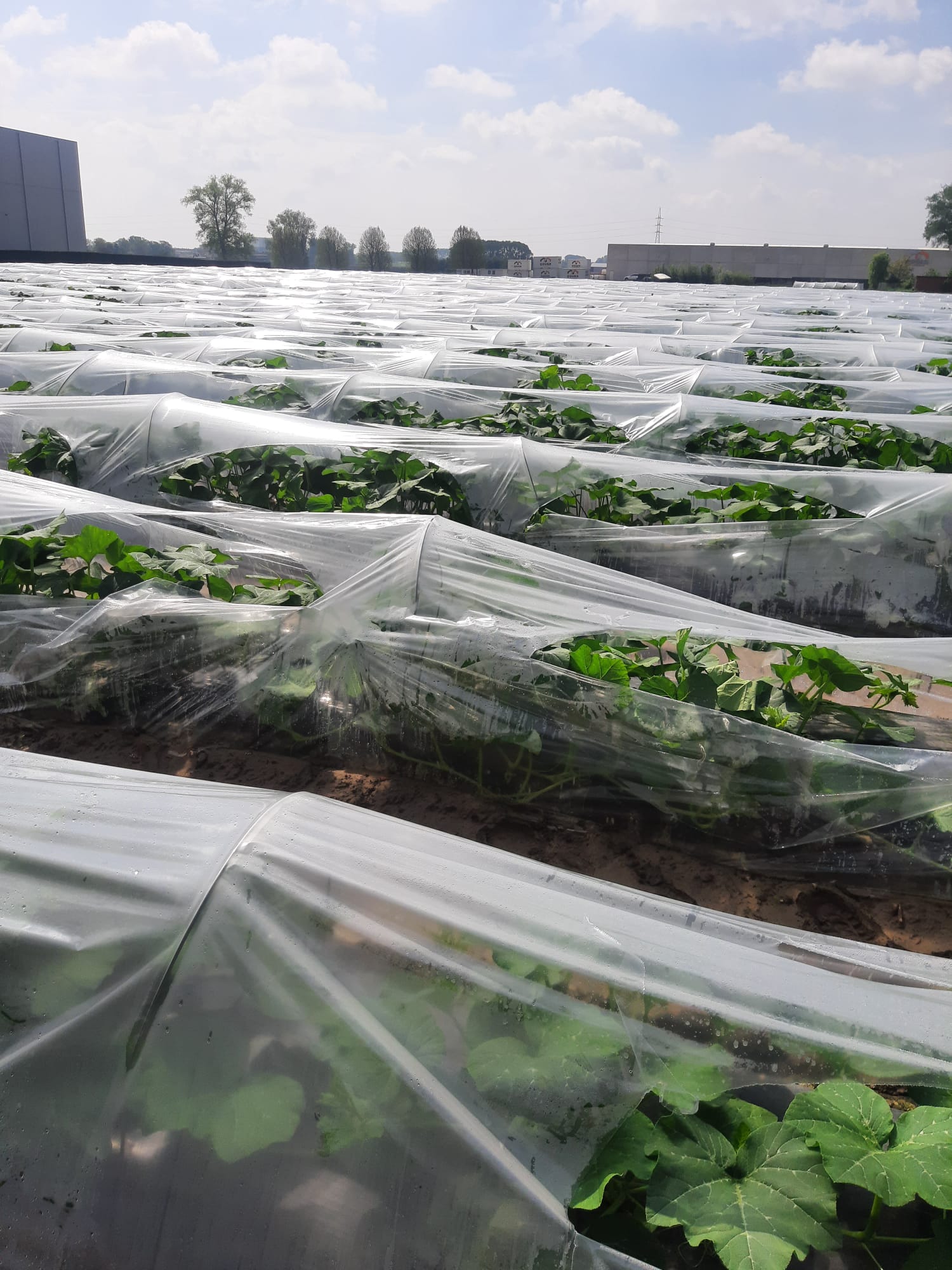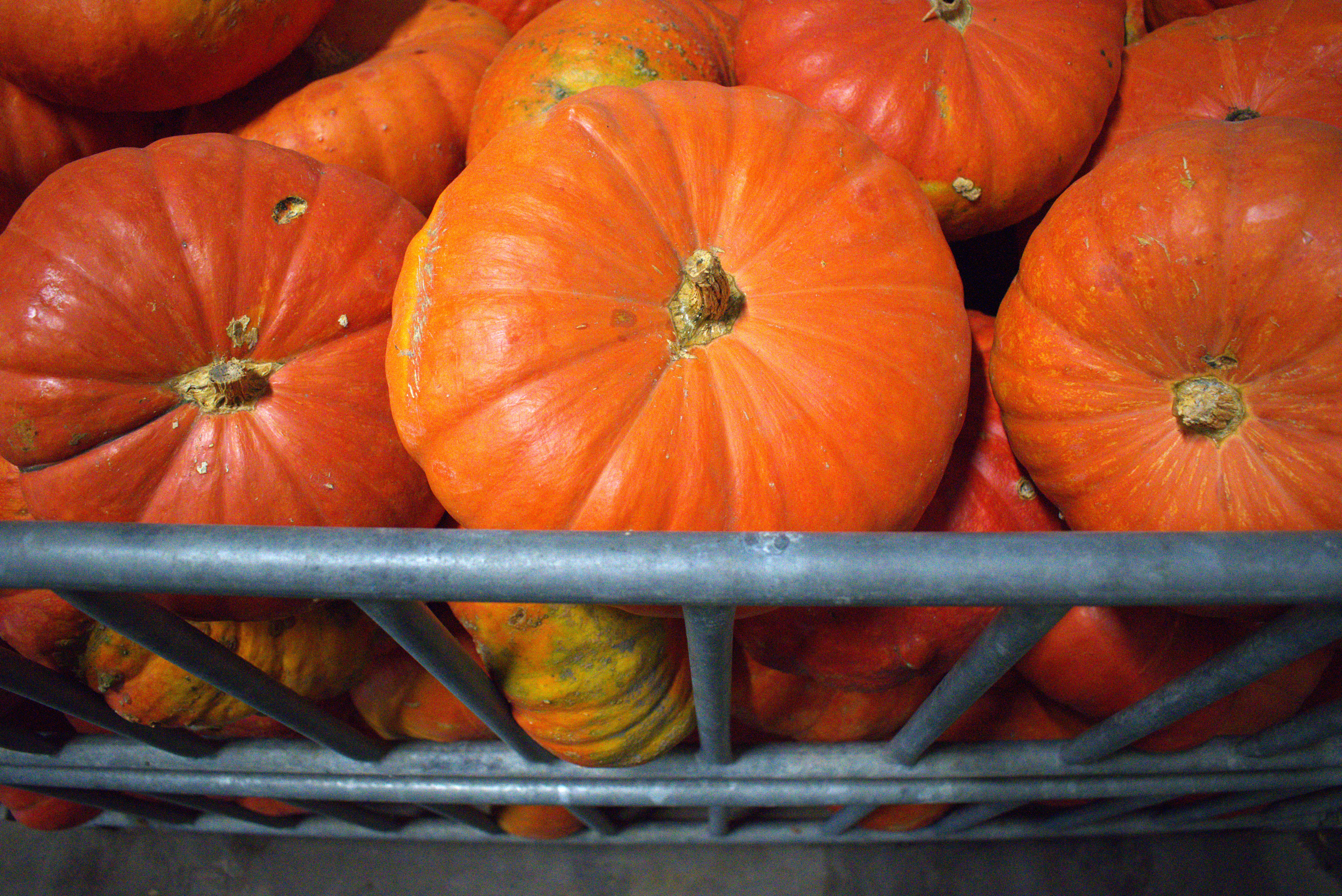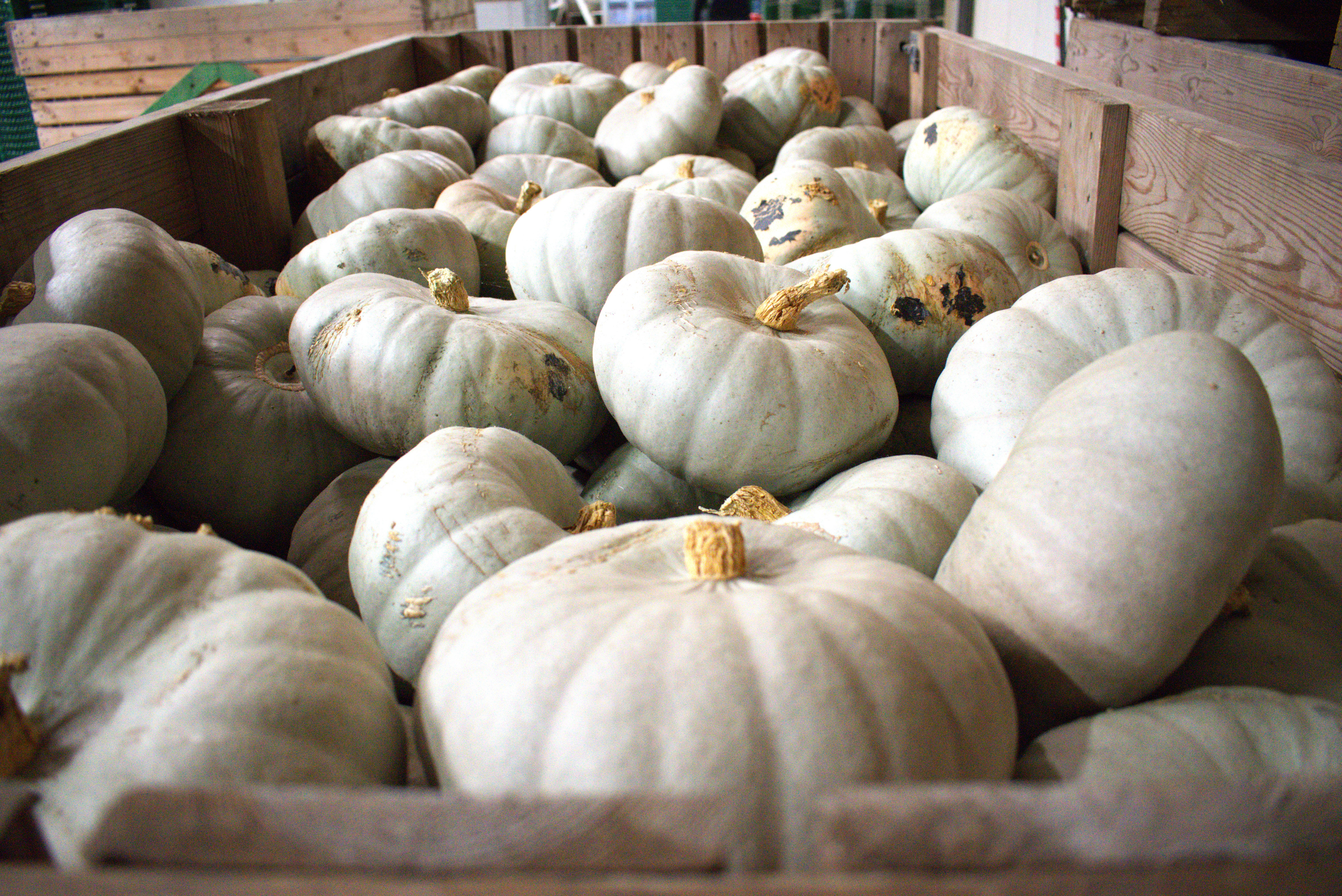Pumpkins are more popular than ever. They are no longer just used in soup, but are increasingly
taking centre stage in Belgian kitchens! And rightly so!
We spoke to our pumpkin grower from Ardooie.
My business is located in Ardooie, in the heart of West Flanders. I took over from my parents
in 2007, making me the fifth generation to run the company. My wife also works part-time in
our family business.
We grow pointed cabbage, pumpkins, baby carrots, courgettes, leeks, parsley and finally
potatoes.
Also, I’m certainly open to exploring new crops in the future. I’m still young so I have the time
and energy to look into other possibilities.
Next July or August, we will also be adding a large new storage shed. One third will be
refrigerated, providing space for around 1,500 pallet boxes. This will allow us to also store
crops like white and red cabbage so there are plenty of opportunities.
Oh yes, definitely the Halloween and butternut pumpkins! In fact, we’re noticing that
pumpkins in general are becoming increasingly popular. Spaghetti pumpkins are the slowest
growers in terms of volume but we think that’s mainly because people don’t really know what
to use them for or what they actually are.
There are many delicious pumpkin varieties, each with their own characteristics. Every year I
try out two new varieties and then we decide whether or not to add them to our range.

Pumpkins can’t be grown year-round but we always start the process under small tunnels so
we can begin as early as possible and extend the season a little.
We plant in early April and then cover the plants with tunnels. This provides better protection
and helps them get off to a stronger start.

Around 15 May the plastic film is removed and from there the plants can continue to grow in
the open air. Every year we hope there will be no night frost after mid-May because that’s our
worst nightmare!
From early August, the very first varieties are ready for harvesting.
This is done using a harvesting belt. The tractor navigates between the rows using GPS and
the pumpkins are harvested with electric pruning shears. Next they are brought here to be
washed, with the exception of the earliest varieties. These are brushed instead as their skins
aren’t strong enough yet.
Pumpkins only grow once a flower has been pollinated. There are male and female flowers,
and the female flower must be fertilised with pollen from the male flower. Pollination is done
by bees and that’s why we place beehives in the fields.
The more plants you have, the easier pollination becomes.

Outside the growing and harvesting season, we have to hoe the fields, which means
removing weeds mechanically. In addition, the fields have to be irrigated using reels. Some
years this can be a challenge due to water shortages. Fortunately, we have access to a large
water basin not far from here, in Ardooie. All local farmers can make use of it if there’s a
shortage. At the beginning of the year, you have to reserve a certain volume of water and if
the need arises, you can use it.
After the growing season, we spread green manure on the fields. Sometimes we let those
plots rest for a year with the green manure still in place. This greatly improves the quality of
the next harvest.
I apply biodegradable film on the ridges formed in the fields to prevent weeds and help the
soil retain moisture more effectively.
Planting everything and watching it grow. That atmosphere during the harvest... the colours
are breathtaking! Sometimes people stop by the field to take pictures, which is fantastic!
Our staff love that as well. Harvesting pumpkins is heavier work than harvesting our other
crops but they still prefer it.
And of course, the outdoor life: being outside, experiencing the growing seasons and living to
the rhythm of nature. We also enjoy the variety in our crops; growing just one product just
wouldn’t suit us.

They must look fresh and, above all, not shrivelled.
The colour is also important. A butternut should be a nice brown orange all over and there
can’t be any green spots. If you see that in the store you definitely shouldn’t buy it.
We’ve made strides over the past few years. We now agree in advance on volumes that are
always taken. It’s very nice to be able work that way.
Still looking for extra inspiration? You can also find lots of delicious
pumpkin recipes on the Delhaize website!